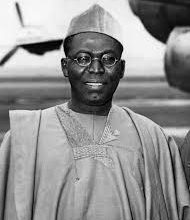How Hegel’s Deliberate Ignorance of African History Legitimated the Colonisation of Africa

Isaac Samuel is an independent researcher whose work focuses on African history and economics. His prolific output on pre-colonial African history can be found on his blog AfricanHistoryExtra, which as a collective body of extraordinary scholarship puts the lie to the still widely held belief that – in the words of esteemed University of Oxford historian Hugh Trevor-Rope in the 1960s – there is no African history, “only the history of Europeans in Africa. The rest is darkness”. Here, in a blistering account, Samuel shows how German philosopher Georg Hegel – one of the most influential figures of 19th century philosophy – wilfully misinterpreted first-hand accounts of the Asante kingdom from the 18th century. The result, both in the work of Hegel and those who followed him, was the construction of an absurdly fictional account of African society, steeped in popular beliefs of his time about the continent’s supposed backwardness, that deliberately subsumed the richness and complexity of Asante history in order to legitimate imperial expansion and colonial rule.
By Isaac Samuel
In the year 1744, a series of battles in northern Ghana marked the ascendance of a new regional power, whose legacy in the Atlantic world would greatly influence western conceptions of African history. For several months, the cavalry armies of the kingdoms of Gonja and Dagomba – heirs to the legacy of the old empires of Ghana and Mali – faced off against the formidable infantry of the Asante kingdom, an upstart state to their south which had been founded less than a century prior. Asante’s northern campaign, which was personally led by its king Opoku Ware, ended with a resounding victory in Gonja but a near defeat in Dagomba where his besieged army was only saved by the musket fire which frightened Dagomba’s cavalry.
The Gonja scholar Sidi Umar wrote of these events that “At the end of this year 1744 the infidels entered the country of Gonja, and the Gonja knew them as Imbo [i.e. Ashanti], they also invaded Dagomba and the people of Dagomba took to flight … the cursed unbeliever, Opoku, entered the town of GhGh (in Dagomba) and plundered it”.[1] When Opoku Ware died in 1750, Sidi Umar left no kind words for the Asante ruler, writing “May Allah curse him and put his soul into hell. It was he who harmed the people of Gonja, oppressing and robbing them of their property at his will”.[2]
In the decades following its northern campaigns, Asante formally incorporated Gonja as a tributary province. An imamate was created at Asante’s capital Kumasi that was populated by scholars from Gonja, among whom was Sidi Umar’s great-grandson Karamo Togma, the author of a chronicle on Asante’s history in 1807
No longer seen as an oppressor but as a protector, Gonja scholars lauded the Asante government. Karamo’s chronicle of Asante was unfortunately lost in the Anglo-Asante war of 1874, but it had been extensively used by the British envoy Joseph Dupuis who visited Kumasi in 1820. In the sixth chapter of Dupuis’ Journal of a Residence in Ashantee where he outline’s Asante’s history based on information he copied from the “moslem records”, Dupuis shows Asante to be a well-organized “empire” with an elaborate administrative system and “codes of laws”, led by a king who was elected by the “principal officers of state” and respected by his subjects.[4]
Dupuis’ nuanced but positive view of Asante is corroborated by an 1822 letter to King Osei Kwame from Karamo’s uncle named Malik, (who was also the Imam of Gonja) which read “Oh sultan of Alshati and king of this world, may Allah give you long life and good health until old age, may Allah bless your son and help him conquer the people of the land”.[5] Dupuis observed that with the exception of some bad practices, King Osei’s subjects from Gonja thought “he was a good man, and wholly underserving the name of tyrant”.[6] However, this observation was at odds with the contemporary European perception of Asante, popularized by the German philosopher Georg Hegel.
Nearly two decades after Karamo’s chronicle on Asante’s history, Hegel included the Asante kingdom in his lectures on world history and religion, delivered in Berlin in 1827.[7] While Hegel is celebrated in the West as one of the founders of modern European philosophy, he had a lacklustre reputation as a historian due to his pre-occupation with constructing philosophies of history around the concept of race.[8]
For information on Asante’s society and history, Hegel relied on the writings of Thomas Bowdich, who was Dubois’ predecessor in the role of British envoy to Asante.[9] In 1819, Bowdich published his meticulously detailed account of the Asante kingdom in his book Mission from Cape Coast Castle to Ashantee. Bowditch’s account on Asante described an African government and society so sophisticated and familiar to his Western audience that some of his peers, including Dubuis, considered it embellished.[10]
Bowdich had also seen the chronicle of Asante’s history but since he couldn’t read Arabic, he relied on oral accounts from Asante’s courtiers who, understandably, recounted an even more positive account of their kingdom’s history than what Karamo had written.[11] However, anyone who has read Bowdich’s colourful description of Asante’s society (that has proved to be an invaluable resource for specialists on Asante history) would be surprised at how much Hegel distorted it.
Nearly one third of Bowditch’s book contained chapters on the Asante’s geography, history, constitution, laws, architecture, economy, trade, language. However, Hegel appeared to deliberately ignore this detail to focus instead on a few specific passages. Even here, the passages that attracted Hegel’s attention were misconstrued.[12]
In a section on the supposed despotism of African kings, Hegel’s evidence from Asante was that “the king inherits all the property left by his deceased subjects”, yet Bowdich had recorded that “the king is heir to the gold of every subject”.[13] In a section on the supposed fanaticism of Africans, Hegel claims that in the Asante’s pre-war preparations, the bones of the king’s mother are washed with human blood, yet Bowditch’s account mentions that bones were “bathed in rum and water”, wiped with silks, covered in gold in a brief ceremony and later re-interred.[14] In a section about the supposed sensuousness of Africans, Hegel claims that Asante festivals including the consumption of a person by the public, yet Bowditch records that it was “only whispered” that “small pieces” of the enemy’s heart were mixed in the meals of the few war chiefs but not the public.[15]
Hegel then uses the above claim of cannibalism to argue that “slavery has awakened more humanity” among Africans taken away on European ships because those left back in Africa are in a worse condition.[16] Whereas Bowditch mentions that any slave who enters Asante territory from a kingdom not tributary to it “is received as a free subject” and that in Asante, the “good treatment of slaves” is provided for by the liberty of transferring themselves to any freeman that they coerce into doing so by “invoking his death” if he refuses to take them in.[17]
The abovementioned misinterpretations of Asante society are not just anecdotes but make up the entirety of Hegel’s writing on Asante and provide the basis on which Hegel rejected the idea of instinct and respect as a universal human characteristic. Even where Bowdich had attempted to explicate the rationality of Asante’s laws, Hegel’s retelling greatly reinterpreted or simply ignored the evidence that contradicted his preconceptions.[18]
Hegel’s Africans supposedly exist at the lowest level of consciousness – immediate sensuousness – which is why he claims that Africa lies outside history. According to Hegel, it’s only by encountering the West and enduring slavery that Africa enters into the dialectical process of consciousness and thus world history. Hegel therefore surmises that it is both necessary and just that Africa be subjected to slavery and colonization.[19]
Hegel selected and deployed details from Bowditch’s account to fit with his theoretical apriorism of Africa as a place without history. This is representative of Hegel’s academic practice, in that he looked into books written about African societies and found what he was looking for, even when this meant wilful misinterpretation to construct an absurdly fictional account of African society that is steeped in popular beliefs of his time about the continent’s supposed backwardness. Hegel’s ludicrous theorizing barred him from ever admitting Africa and its people to ‘history’ as he construed it. For a continent which supposedly has no “historical interest of its own”, Hegel devoted a great deal of attention to it, primarily because Hegel’s glorification of Europe was predicated on his denigration of Africa.[20]
In his later books such as Philosophy of Right, Hegel advocated for colonial expansion as a solution to elevate the so-called barbarian nations onto the stage of history, stating that “the rights of mere herdsmen, hunters, and tillers of the soil are inferior, and their independence is merely formal”.[21]
The ideas of Hegel and his peers such as Immanuel Kant were part of the dominant discourses of colonialism which purported a racial and cultural superiority of the West over non-Western societies such as Asante. They provided a rationale for colonial expansion cloaked in the language of extending civilization and bringing Africa into history.[22]
Beginning in 1807 and continuing for nearly a century, the armies of Asante would engage in a protracted war against British colonial expansion from the coast. Ironically, Hegel interpreted Asante’s resistance against British expansionism as evidence for Africans’ “lack of respect for life”.[23] The Anglo-Asante wars were an extremely expensive undertaking that was paid for by the British government largely instigated by extremely negative reports about Asante current in the British public from the writings of Hegel and his peers.[24] Added to this were the biased reports from the British governors of Cape Coast castle on the coast of modern Ghana who even tried to block the embassy of Dupuis which advocated for peace with Asante.
The armies of Asante defeated the British in several battles until an internal conflict over strategy led to the Asante’s defeat in 1874 when the British found Kumasi abandoned and the King Kofi Kakari sent a negotiating party while in retreat. The 1874 invasion had been widely covered by British war correspondents with British newspapers such as The Times publishing 415 articles about Asante in just one year.[26] This furthered the extreme contempt felt by British society towards Asante even more than the fictitious image of the kingdom invented by Hegel had done. So, when the Asante initiated a series of diplomatic exchanges with the British which saw many of their envoys travelling to London, they found the cards heavily stacked against them.
A combination of negative press about the Asante kingdom and great power competition between Britain and France culminated in the preparation for a British expedition against Asante in 1895, even as the kingdom’s envoys were in London trying to avert the looming threat. Despite the envoys’ success in obtaining a more favourable treaty to retain their sovereignty through a concessionaire arrangement, and despite their nascent efforts in public relations to document the “civilizing” improvements in Asante’s laws, the British colonial secretary, headed by the expansionist Joseph Chamberlain, authorized the invasion.[27]
Fully trusting in the efforts of his envoys, the reigning Asante King Prempeh I made no effort to resist the expedition, whose leaders’ racism against Africans was extreme even by the standards of the day.[28] Prempeh was promptly exiled to Seychelles, but the kingdom was only formally occupied by the British after a final anti-colonial war in 1900.
After the fall of Asante, amateur colonial historians begun reconstructing the history of the kingdom that was now subsumed under the Gold Coast colony. In 1915, Dr Walton Claridge, a medical officer with no formal training in history, published A History of the Gold Coast and Ashanti, a 1,287-page volume of the Gold Coast history. Claridge was a loyal imperialist whose account of Asante’s history was written to legitimize the presence of the colonial government. He wrote that the extension of British power “was the natural unavoidable outcome of the long contact of their continued presence in the country and of the long contact of a stronger and more virile race with a less enlightened people”.[29]
The radicalized concept of the British as a “virile race” and a leading force in world history was popularized by Joseph Chamberlain,[30] the aforementioned colonial secretary responsible for the most aggressive colonial wars. Claridge’s account of Asante history focuses almost exclusively on its interactions with the British and the latter’s eventual victory over Asante.[31] By inscribing Chamberlain’s racialized notions of British superiority into the history of Asante, and solely focusing on British interactions with Asante, Claridge was championing a Hegelian conception of African history.
Later writers such as William Balmer’s 1925 book A History of the Akan Peoples of the Gold Coast and W.E.F Ward’s 1935 book A Short History of the Gold Coast made little improvements to Claridge’s work, even as Ward’s account of Gold Coast history went through many editions and became a standard text in local schools.[32] As late as 1967, Ward was paying homage to Claridge as a source of inspiration, writing that “everyone who writes on Gold Coast history should begin, after the fashion of the country, by pouring a libation and sacrificing a sheep in honour of D. Claridge”.[33] The colony had since gained its independence and been renamed the Republic of Ghana, and professional historians such as Ivor Wilks were beginning to challenge the previous writing on Asante society and history by Western scholars and colonial writers who had been pre-occupied with rationalizing imperial expansion and its subsequent establishment of colonial rule.[34]
Using the vast corpus of internal and external accounts of Asante’s society, Ivor Wilks published his celebrated account on Asante history, Asante in the Nineteenth Century. Wilks relied on several primary sources including; oral traditions which had been documented by the deposed king Prempeh in 1907; the 19th century chronicles by Muslim writers such as Karamo and his peers; as well as the detailed accounts of European visitors such as Bowditch, Dupuis and the missionaries who succeeded them.[35] Wilks’ work was improved upon by other specialists of Asante history such as Tom McCaskie[36] and Emmanuel Akyeampong[37], which combined with the rise of postcolonial historiography was influential to contemporary African writers.
Among the most prominent post-colonial African writers is the Nigerian novelist Chinua Achebe. In a 1994 interview with the Paris Review where he explains the source of his interest in storytelling, Achebe recounts the stories he read as a student at school about European encounters with remote people and strange lands. He adds that “Then I grew older and began to read about adventures in which I didn’t know that I was supposed to be on the side of those savages who were encountered by the good white man. That was the way I was introduced to the danger of not having your own stories. There is that great proverb—that until the lions have their own historians, the history of the hunt will always glorify the hunter. Once I realized that, I had to be a writer. I had to be that historian. It’s not one man’s job. It’s not one person’s job. But it is something we have to do, so that the story of the hunt will also reflect the agony, the travail—the bravery, even, of the lions”.[38]
Achebe’s often cited proverb metaphorically describes how dominant groups such as colonialists inscribe power through historical narratives, and his solution was to tell the story which reflected the lion’s bravery rather than the hunter. Achebe’s call to shift modern African historiography away from its Eurocentric foundations was emblematic of the prevailing movement of decolonization in post-colonial studies, which sought to move beyond the colonial library by interrogating the internal sources of African history including those written by literate Africans like Karamo.[39]
However, the documented history of Asante shows that the kind of history which glorified the British was not a result of the Asante not having their own stories, but that their stories had been deliberately subsumed in order to legitimate imperial interests. Furthermore, the writers of Asante’s own stories such as Karamo and Bowditch recorded a fairly accurate account of Asante’s history, despite falling into Achebe’s metaphorical camps of the ‘lion’ and the ‘hunter’ in relation to Asante.
Hegel and the colonial writers who succeeded him weren’t lacking accurate information about African societies, but deliberately ignored the stories of the African ‘lion’ to glorify the European ‘hunter’. The so-called ‘facts’ and ‘truths’ that Hegelian and colonial discourses often claim to embody are instead simply a projection of how the colonizers envisioned and sought to legitimate their rule. They were misconceptions deliberately invented by particular understandings of the world as well as by particular configurations of power. We therefore ought to read them extremely critically to reassess their world view as well as their claims to authenticity.
Stories of African history don’t just reflect the agony and bravery of the lions, but they reveal the boasts of the wily hunter to be nothing more than a farce.



